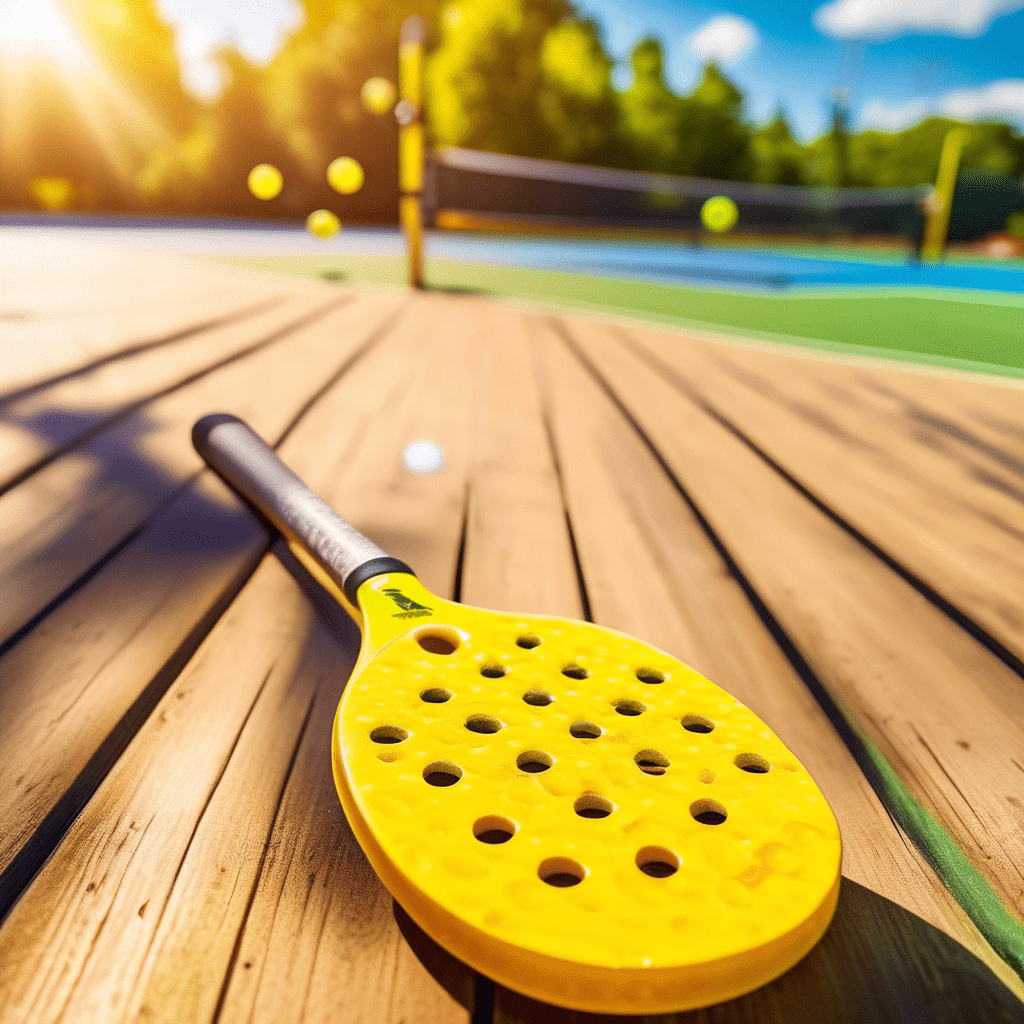The Curious Case of Pickle Ball: Unraveling the Story Behind the Name
If you’ve ever wondered about the quirky name behind one of America’s fastest-growing sports, you’re not alone. Pickle Ball, a game that combines elements of tennis, badminton, and table tennis, has been capturing hearts and courts across the nation. But why is it called Pickle Ball? Let’s dive into the fascinating history and uncover the truth behind this peculiar moniker.
The Birth of a Sport: A Brief History
Before we tackle the name, it’s essential to understand the game’s origins. Pickle Ball was invented in 1965 on Bainbridge Island, Washington, by three dads: Joel Pritchard, Bill Bell, and Barney McCallum. These creative fathers were looking for a way to entertain their bored children during a summer vacation. Little did they know that their improvised game would evolve into a sport played by millions.
Using a mishmash of equipment they had on hand – ping-pong paddles, a perforated plastic ball, and a badminton court – they created a new game that was accessible, fun, and engaging for all ages. The sport quickly gained popularity among family and friends, spreading throughout the community and eventually across the country.
The Name Game: Theories and Myths
Now, let’s address the elephant in the room – or should we say, the pickle on the court? The origin of the name “Pickle Ball” has been a subject of debate and speculation for years. There are two primary theories, each with its own merits and supporters.

Theory 1: The Family Dog
The most widely circulated story suggests that the game was named after the Pritchard family’s dog, Pickles. According to this tale, Pickles would chase after the ball and run away with it during their backyard games. It’s a charming narrative that paints a vivid picture of family fun and a mischievous canine companion.
However, there’s a pickle in this theory. Joan Pritchard, Joel’s wife, later revealed that they didn’t get the dog until a couple of years after the game was invented. So while Pickles the dog was indeed real and loved to chase the ball, he came into the picture after the sport had already been named.
Theory 2: The Pickle Boat
The second theory, which is now considered more accurate, comes from Joan Pritchard herself. She explained that the name came from the term “pickle boat” used in rowing. In crew races, the pickle boat is the last boat to finish, often crewed by oarsmen chosen from the leftovers of other boats.
Joan drew a parallel between this concept and their newly invented game, which was cobbled together from bits and pieces of other sports. The idea of a “pickle boat” – a mishmash of leftover elements – perfectly described their creation, hence the name Pickle Ball.
This explanation aligns with the history of Pickle Ball as a sport born from improvisation and resourcefulness. It reflects the spirit of the game – accessible, adaptable, and fun for everyone, regardless of athletic prowess.
The Evolution of the Name
Regardless of its true origin, the name “Pickle Ball” stuck and has become an integral part of the sport’s identity. Over the years, it has evolved from a backyard game to a recognized sport with official rules, tournaments, and a growing professional circuit.
The unique name has undoubtedly contributed to the sport’s charm and memorability. It’s a conversation starter, often piquing curiosity and inviting questions from those unfamiliar with the game. This intrigue has likely played a role in the sport’s rapid growth and popularity.

The Impact of the Name on Pickle Ball’s Growth
The quirky name “Pickle Ball” has had a significant impact on the sport’s growth and popularity. Here’s how:
1. Memorability
The unusual name makes the sport stand out. It’s not often you hear of a sport named after a condiment or a dog! This memorability factor has helped Pickle Ball gain traction and word-of-mouth publicity.
2. Approachability
The playful name gives the impression of a fun, casual sport that doesn’t take itself too seriously. This approachability has attracted players of all ages and skill levels, contributing to its inclusive nature.
3. Marketing Potential
The name lends itself well to creative marketing and memes. From pickle-themed merchandise to witty slogans, the name has opened up numerous avenues for promoting the sport.
4. Conversation Starter
The name often prompts questions, leading to discussions about the sport. This natural curiosity has helped spread awareness and interest in Pickle Ball.
Embracing the Pickle: How the Name Reflects the Sport’s Spirit
Whether named after a dog or a boat, the term “Pickle Ball” embodies the spirit of the game. It reflects the sport’s origins as a fun, improvised activity and its evolution into a beloved pastime for millions. The name captures the essence of what makes Pickle Ball special:
- Inclusivity: Just as the name doesn’t take itself too seriously, Pickle Ball welcomes players of all ages and skill levels.
- Adaptability: Like the “pickle boat” that inspired its name, Pickle Ball adapts elements from various sports to create something unique.
- Fun: The playful name sets the tone for a sport that prioritizes enjoyment and social interaction.
- Community: The shared curiosity about the name creates a sense of community among players and fans.
The Future of Pickle Ball: What’s in a Name?
As Pickle Ball continues to grow in popularity, its unique name remains an integral part of its identity. The sport has come a long way from its humble beginnings in a backyard on Bainbridge Island. Today, you can find Pickle Ball courts near you in parks, community centers, and even dedicated Pickle Ball facilities.
The name has stood the test of time, surviving the sport’s evolution from a family pastime to a competitive game with professional tournaments. It’s a testament to the enduring appeal of Pickle Ball’s origin story and the charm of its quirky moniker.
Embracing the Pickle Ball Culture
The name “Pickle Ball” has spawned a unique culture around the sport. From Pickle Ball puns to pickle-themed gear, players have embraced the name wholeheartedly. It’s not uncommon to see players sporting shirts with slogans like “Kind of a big dill” or “Pickle Ball is my jam.”
This playful culture extends to the terminology used in Pickle Ball. Terms like “kitchen” (the non-volley zone near the net) and “dink” (a soft shot that just clears the net) add to the sport’s unique lexicon and contribute to its welcoming, lighthearted atmosphere.
Conclusion: A Name That Packs a Punch
In the end, whether you believe Pickle Ball was named after a dog or a boat, one thing is clear: the name has become an essential part of the sport’s identity and charm. It reflects the game’s origins as a fun, improvised activity and its evolution into a beloved sport played by millions.
The story behind the name serves as a reminder of the sport’s humble beginnings and its core values of fun, inclusivity, and community. As Pickle Ball continues to grow and evolve, its quirky name will undoubtedly continue to spark curiosity, invite questions, and bring smiles to faces both on and off the court.
So the next time someone asks you, “Why is it called Pickle Ball?” you’ll have a story to tell – whether it’s about a mischievous dog, a rowing term, or both. And who knows? Your explanation might just inspire someone to pick up a paddle and join in the fun of this uniquely named sport.